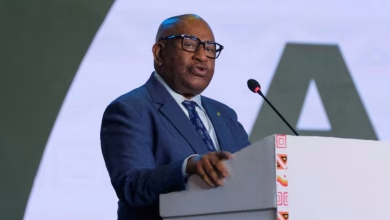Jacob Zuma’s newly formed uMkhonto weSizwe (MK) party has emerged as a major disruptor in South Africa’s election, exceeding expectations and contributing to the African National Congress’ (ANC) sharp drop in support.
Although MK is not expected to win the election or become a coalition partner, it has made a significant impact, particularly in the populous province of KwaZulu-Natal, Zuma’s home region.
With results from about 64% of polling stations in, MK was in third place with 11.8% of votes, while the ANC had 41.9%, down from 57.5% in the last 2019 election, potentially losing its majority for the first time in 30 years.
In KwaZulu-Natal, strategically significant due to the main ports of Durban and Richard’s Bay, MK was leading with about 44% to the ANC’s just under 19%. Durban handles around 60% of trade to and from South Africa, while Richard’s Bay is the largest coal export facility in Africa.
Political analysts attribute MK’s success largely to Zuma’s popularity, rooted in his humble roots and anti-establishment stance. Zuma, an anti-apartheid veteran and Zulu traditionalist, was forced by the ANC to quit the presidency in 2018 following corruption scandals, which he denies.
Zuma’s presidency was defined by “state capture,” enabling business people to plunder state resources. His successor, Cyril Ramaphosa, vowed to clean up the ANC, but critics say his leadership has been too timid and constrained by consensus-building.
MK’s platform appeals to voter frustration over racial and economic inequality persisting since the end of apartheid. Like the Marxist Economic Freedom Fighters (EFF) party, MK rails against “white monopoly capital” and proposes radical policies, including a referendum on the constitution and expropriating land without compensation.
MK’s rise has caught the ANC off guard, with the party’s Deputy Secretary-General, Nomvula Mokonyane, acknowledging that KwaZulu-Natal was a surprise. If not for MK, the ANC might have retained its majority nationally, according to researcher Oscar Van Heerden.
A potential coalition between the ANC and MK is possible but unlikely due to MK’s probable demands, such as replacing Ramaphosa and absolving Zuma’s legal issues. Zuma is due to stand trial next year for corruption charges related to a 1990s arms deal.
MK supporters are enthusiastic about Zuma’s leadership and policies, with voter Phumzile Chiya saying, “Mr. (Zuma) did not get enough time to govern. I decided to follow him again because I know when he promises to do something, he does.”
